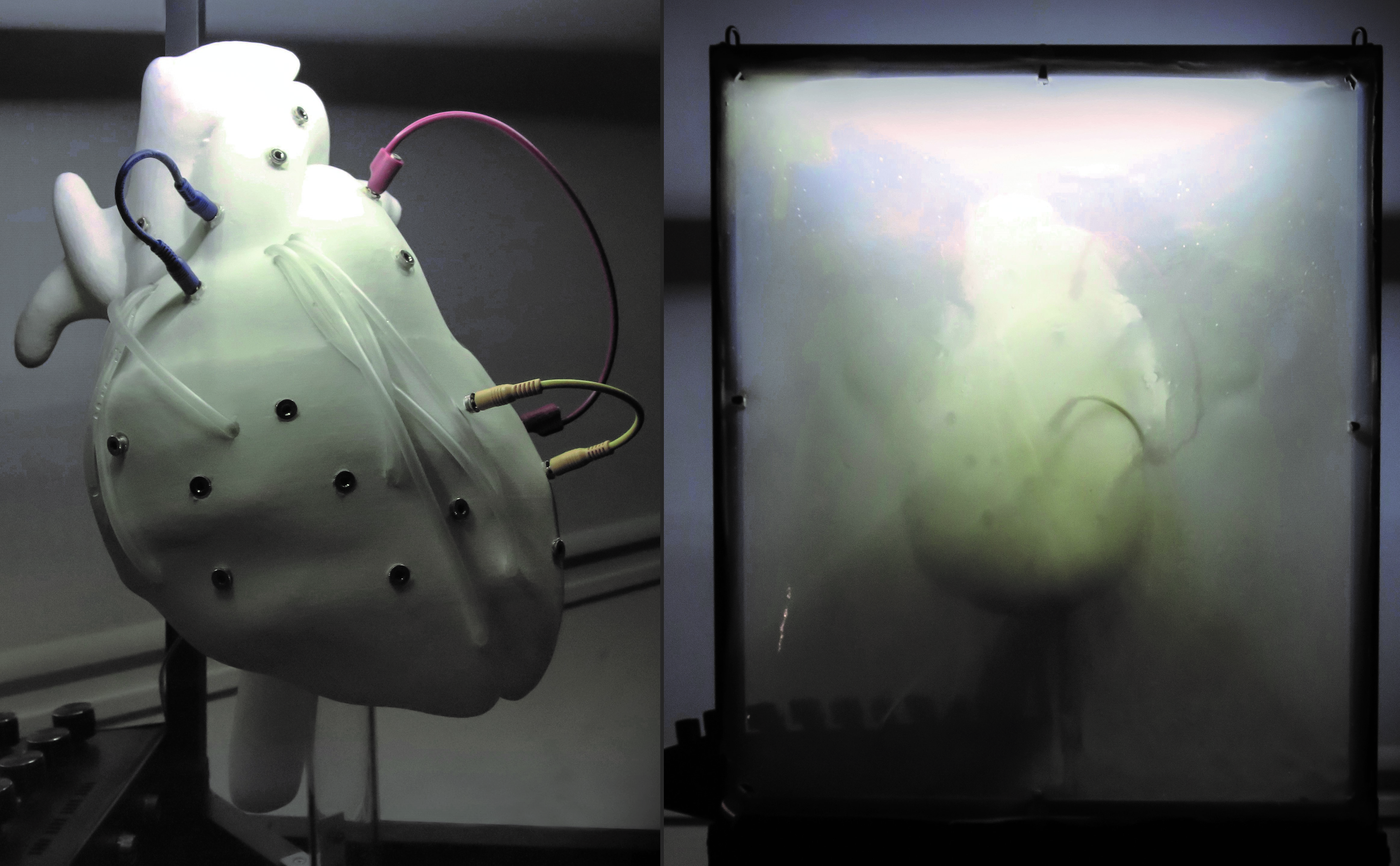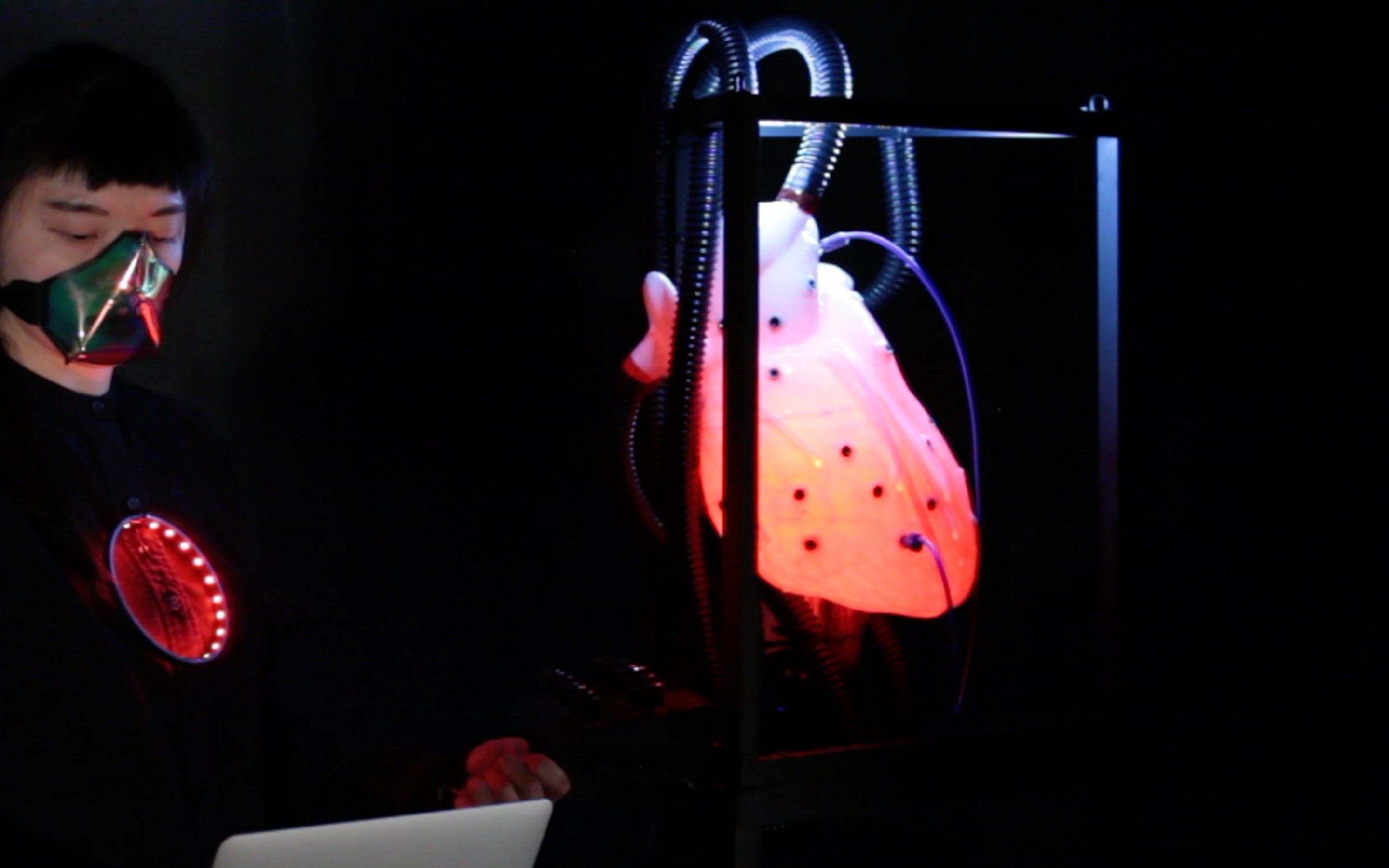WHAT DO HUMANS LOSE WHEN THE COMPUTER TAKES CHARGE?
Artist | Yen Tzu Chang, (TW)
Art Form | Performance & Sound Installation
Motivation | New scientific developments are rapidly finding their way into our everyday life and require explanation and feedback from the public. The art is a suitable means of dialogue with different target groups to illuminate and discuss innovations and social changes. Do new developments such as artificial intelligence offers opportunities and motivation, or will humans become the losers of progress? Against this background, the performance WHOSE SCALPEL addresses complexity in art and medicine and the possible consequences for our society. Not last but not least, the question is raised as to what human beings lose when the computer takes over.
Methodology & Implementation | New scientific developments are rapidly finding their way into our everyday life and require explanation and feedback from the public. Art is a suitable means of dialogue with different target groups to illuminate and discuss innovations and discuss innovations and social changes. Do new developments such as artificial intelligence offers opportunities and motivation, or will humans become the losers of progress? Against this background, the performance WHOSE SCALPEL addresses the complexity of art and medicine and possible consequences for our society. Last but not least, the question is posed of what human beings lose when the computer takes over. The accompanying installation is based on a supersized 3D-printed replica of the artist's heart, equipped with light sources and electronic sound generators. During the Yen Tzu Chang acted as a "surgeon," placing a bypass with the help of cables - guided by a presumed artificial intelligence. Through the almost complete darkness and the industrial sounds, a futuristic, partly oppressive, but consistently exciting backdrop is created.
Scientific background | The performance was created as part of »STEAM Imaging I«, a residency program to link science, technology, and mathematics with the world of art. The project combined computational medicine with STEM issues, sound art, and ethical discussions. During her stay in Bremen, Yen Tzu Chang learned how to use a software platform for processing medical image data (MeVisLab). MR imaging and the software platform for handling medical image data were also central topics of the STEAM student workshops, which are an integral part of the residency. The aim was to break down barriers between the disciplines and to explore flexible forms of learning and collaboration. DOI:10.1162/leon_a_01792
Credits | Artist & Sound & Performance: Yen Tzu Chang, Fraunhofer MEVIS team of the »STEAM Imaging I« residency: Bianka Hofmann, Sabrina Haase, Alexander Köhn, David Black. Ars Electronica team of residency: Veronika Liebl, Jessica Galirow, Maria Pfeifer, Peter Freudling, Erwin Reitboeck. Technical support of medical images: Alexander Köhn. Technical support for 3D models and printing: Peter Freudling, Erwin Reitboeck, Benjamin Krux. Special thanks: Interface culture, Fabricio Lamoncha Martinez, Jie Ting Jiang, Yin-Wen Lin.
 Fraunhofer Institute for Digital Medicine MEVIS
Fraunhofer Institute for Digital Medicine MEVIS
